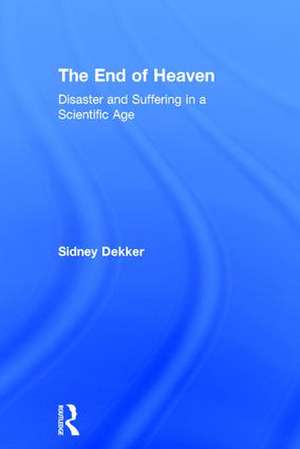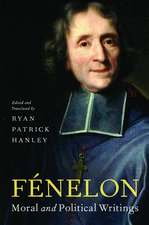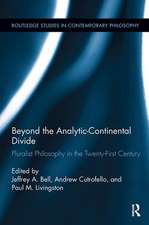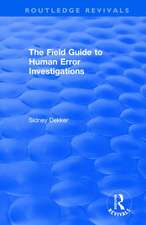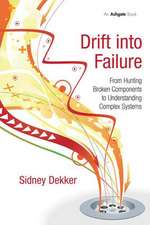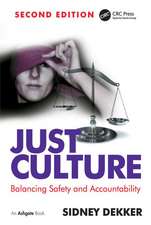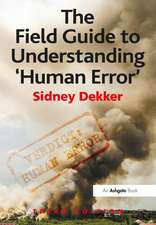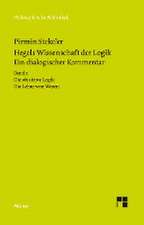The End of Heaven: Disaster and Suffering in a Scientific Age
Autor Sidney Dekkeren Limba Engleză Hardback – 21 mar 2017
| Toate formatele și edițiile | Preț | Express |
|---|---|---|
| Paperback (1) | 391.40 lei 6-8 săpt. | |
| CRC Press – 23 mar 2017 | 391.40 lei 6-8 săpt. | |
| Hardback (1) | 594.76 lei 6-8 săpt. | |
| CRC Press – 21 mar 2017 | 594.76 lei 6-8 săpt. |
Preț: 594.76 lei
Preț vechi: 875.26 lei
-32% Nou
Puncte Express: 892
Preț estimativ în valută:
113.80€ • 119.14$ • 94.17£
113.80€ • 119.14$ • 94.17£
Carte tipărită la comandă
Livrare economică 05-19 aprilie
Preluare comenzi: 021 569.72.76
Specificații
ISBN-13: 9780415789899
ISBN-10: 0415789893
Pagini: 118
Dimensiuni: 156 x 234 mm
Greutate: 0.32 kg
Ediția:1
Editura: CRC Press
Colecția Routledge
ISBN-10: 0415789893
Pagini: 118
Dimensiuni: 156 x 234 mm
Greutate: 0.32 kg
Ediția:1
Editura: CRC Press
Colecția Routledge
Public țintă
Academic and Professional Practice & DevelopmentCuprins
Preface Chapter 1. Disaster, religion and science Chapter 2. Son of a preacherwoman Chapter 3. The entitled class Chapter 4. Existential dread Chapter 5. Human error Chapter 6. A question of faith Chapter 7. Killing death Chapter 8. Returning to dust Chapter 9. Grief without a god Chapter10. The end of death Chapter11. Resurrecting heaven Coda Bibliography Notes
Recenzii
'Drawing as it does on key thinkers and writers in theology, philosophy, history, science, anthropogy, sociology, psychology and political economy, among others, this book is both impressively researched and challenging.'
Dr Elizabeth Bluff, BSc (Hons), MAppSc (OHS), PhD, Visiting Fellow, School of Regulation and Global Governance, The Australian National University.
‘In this remarkable, absorbing and - at times - discomforting book, Sidney Dekker looks at a specific range of safety literature in which people give their experiences of having lived through disaster… Rarely has this reviewer muttered and expostulated so much over a book: it made me mad yet drew me in, especially by those very personal vignettes of the author. Don’t read this if you want an easy introduction to the idea of disaster and suffering but if readers are up for a challenge this is the book for them.'
The RoSPA OS&H Journal
'At once wretchedly fascinating and intellectually demanding, and following the footsteps of Cicero, Plutarch, Calvin, Darwin, Leibniz and Marx, he engulfs the reader in what feels like encyclopaedic knowledge brought to bear on one spot...this is an interesting read, which, in Dekker’s own words, seeks to “tell, to tease, and to tickle” the reader into reflection. Given the patience, concentration and open-mindedness it requires, I believe it will do just that.'
Andrew Sharman CFIOSH, IOSH Magazine
Dr Elizabeth Bluff, BSc (Hons), MAppSc (OHS), PhD, Visiting Fellow, School of Regulation and Global Governance, The Australian National University.
‘In this remarkable, absorbing and - at times - discomforting book, Sidney Dekker looks at a specific range of safety literature in which people give their experiences of having lived through disaster… Rarely has this reviewer muttered and expostulated so much over a book: it made me mad yet drew me in, especially by those very personal vignettes of the author. Don’t read this if you want an easy introduction to the idea of disaster and suffering but if readers are up for a challenge this is the book for them.'
The RoSPA OS&H Journal
'At once wretchedly fascinating and intellectually demanding, and following the footsteps of Cicero, Plutarch, Calvin, Darwin, Leibniz and Marx, he engulfs the reader in what feels like encyclopaedic knowledge brought to bear on one spot...this is an interesting read, which, in Dekker’s own words, seeks to “tell, to tease, and to tickle” the reader into reflection. Given the patience, concentration and open-mindedness it requires, I believe it will do just that.'
Andrew Sharman CFIOSH, IOSH Magazine
Descriere
In this unique book, Dekker tackles a largely unexplored dilemma. Our scientific age has equipped us ever better for explaining why things go wrong. But this increasing sophistication actually makes it harder to explain why we suffer. Accidents and disasters have become technical problems without inherent purpose. When told of a disaster, we easily feel lost in the steely emptiness of technical languages of engineering or medicine. Or, in our drive to pinpoint the source of suffering, we succumb to the hunt for a scapegoat, possibly inflicting even greater suffering on others around us. Broad in its historical sweep and ambition, The End of Heaven is also Dekker's most personal book to date.
